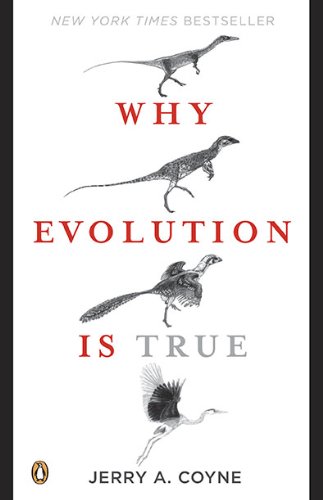Dolphins have Genes for Smelling
Another curious tale of dead genes involves our sense of smell, or rather our poor sense of smell, for humans are truly bad sniffers among land mammals. Nevertheless, we can still recognize over 10,000 different odors. How can we accomplish such a feat? Until recently, this was a completely mystery. The answer lies in our DNA—in our many olfactory receptor (OR) genes.
[...]
Our own sense of smell comes nowhere close to that of mice. One reason is that we express fewer OR genes—only about 400. But we still carry a total of 800 OR genes, which make up nearly 3 percent of our entire genome. And fully half of these are pseudogenes, permanently inactivated by mutations. The same is true for most other primates. How did this happen? Probably because we primates, who are active during the day, rely more on vision than on smell, and so don’t need to discriminate among so many odors. Unneeded genes eventually get bumped off by mutations. Predictably, primates with color vision, and hence greater discrimination of the environment, have more dead OR genes.
[...]
But the most striking example of the evolution—or de-evolution—of OR genes is the dolphin. Dolphins don’t need to detect volatile odors in air, since they do their business underwater, and they have a completely different set of genes for detecting waterborne chemicals. As one might predict, OR genes of dolphins are inactivated. In fact, 80 percent of them are inactivated. Hundreds of them still sit silently in the dolphin genome, mute testimony of evolution. And if you look at the DNA sequences of these dead dolphin genes, you’ll find that they resemble those of land mammals. This makes sense when we realize that dolphins evolved from land mammals whose OR genes became useless when they took to the water. This makes no sense if dolphins were specially created.
Notes:
Yet, as aquatic mammals, they have no need to smell anything.
Folksonomies: evolution genes vestigial genetic
Taxonomies:
/science/medicine/genetics (0.655846)
/health and fitness/disease (0.467330)
/pets/large animals (0.370647)
Keywords:
genes (0.908027 (negative:-0.446005)), dead dolphin genes (0.755458 (negative:-0.284829)), dead genes (0.669530 (negative:-0.642281)), land mammals (0.668405 (negative:-0.466233)), Unneeded genes (0.659700 (negative:-0.390676)), completely different set (0.601669 (neutral:0.000000)), dolphins (0.552428 (negative:-0.452007)), sense (0.551292 (negative:-0.696962)), smell (0.542235 (negative:-0.780295)), poor sense (0.538311 (negative:-0.829024)), aquatic mammals (0.517442 (neutral:0.000000)), curious tale (0.513127 (negative:-0.642281)), volatile odors (0.501099 (negative:-0.457048)), entire genome (0.490468 (positive:0.408119)), fully half (0.489312 (neutral:0.000000)), greater discrimination (0.482688 (neutral:0.000000)), waterborne chemicals (0.478785 (neutral:0.000000)), striking example (0.478497 (positive:0.722956)), DNA sequences (0.477932 (neutral:0.000000)), mute testimony (0.476621 (positive:0.373516)), dolphin genome (0.475118 (negative:-0.385294)), evolution—or de-evolution—of (0.474606 (positive:0.722956)), color vision (0.470733 (neutral:0.000000)), business underwater (0.469679 (neutral:0.000000)), primates (0.467483 (positive:0.383877)), mutations (0.396228 (negative:-0.266010)), percent (0.392871 (negative:-0.377983)), sniffers (0.357255 (negative:-0.713080)), pseudogenes (0.354749 (neutral:0.000000)), Smelling (0.354478 (neutral:0.000000))
Entities:
olfactoryreceptor:Anatomy (0.953573 (positive:0.555893)), 80 percent:Quantity (0.953573 (neutral:0.000000)), 3 percent:Quantity (0.953573 (neutral:0.000000))
Concepts:
Olfaction (0.952851): dbpedia | freebase
DNA (0.928143): website | dbpedia | freebase | yago
Evolution (0.554016): dbpedia | freebase | opencyc
Primate (0.517138): dbpedia | freebase | opencyc
Odor (0.511987): dbpedia | freebase
Gene (0.500969): dbpedia | freebase
Genetics (0.435651): dbpedia | freebase | opencyc
Taste (0.400461): dbpedia | freebase | opencyc





